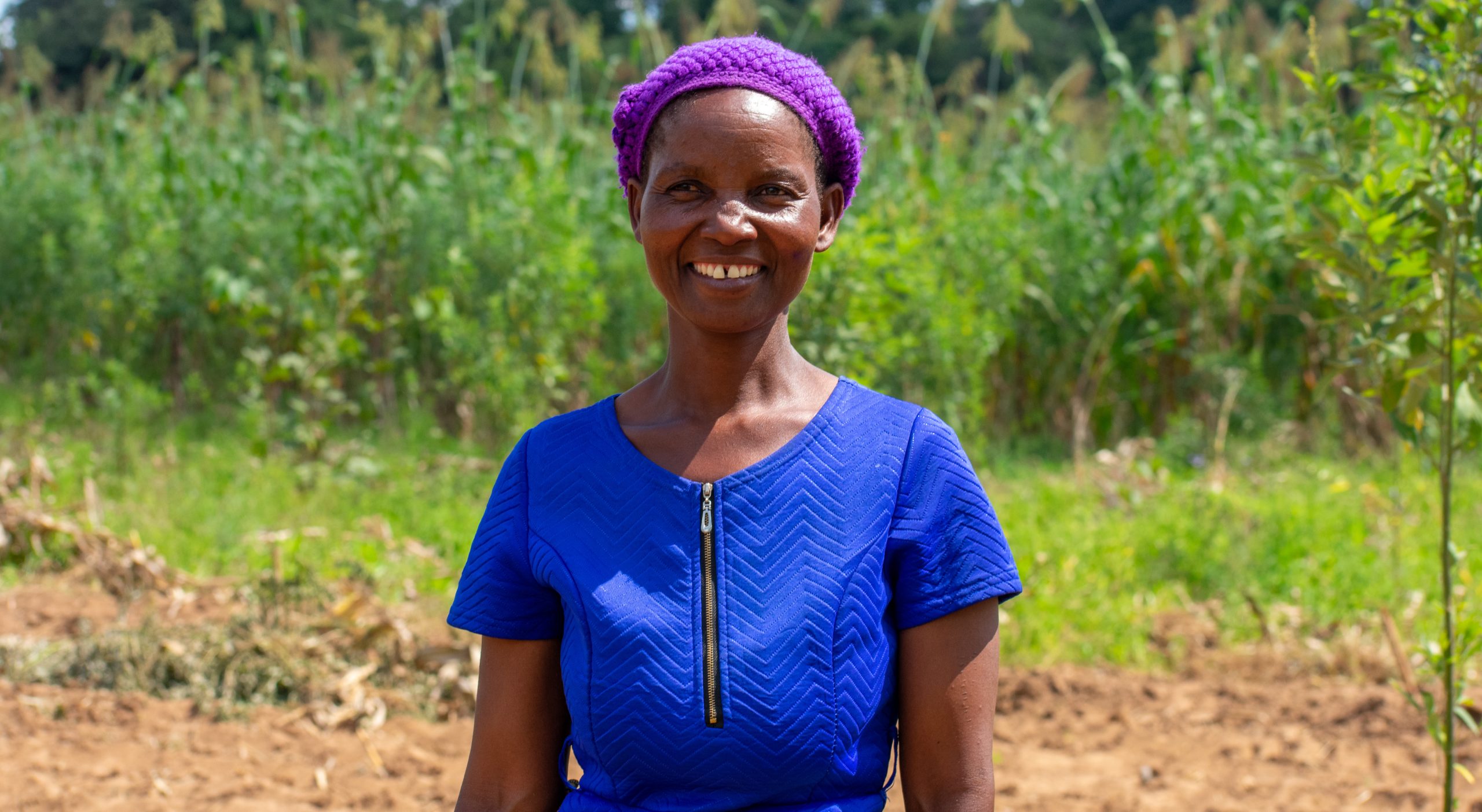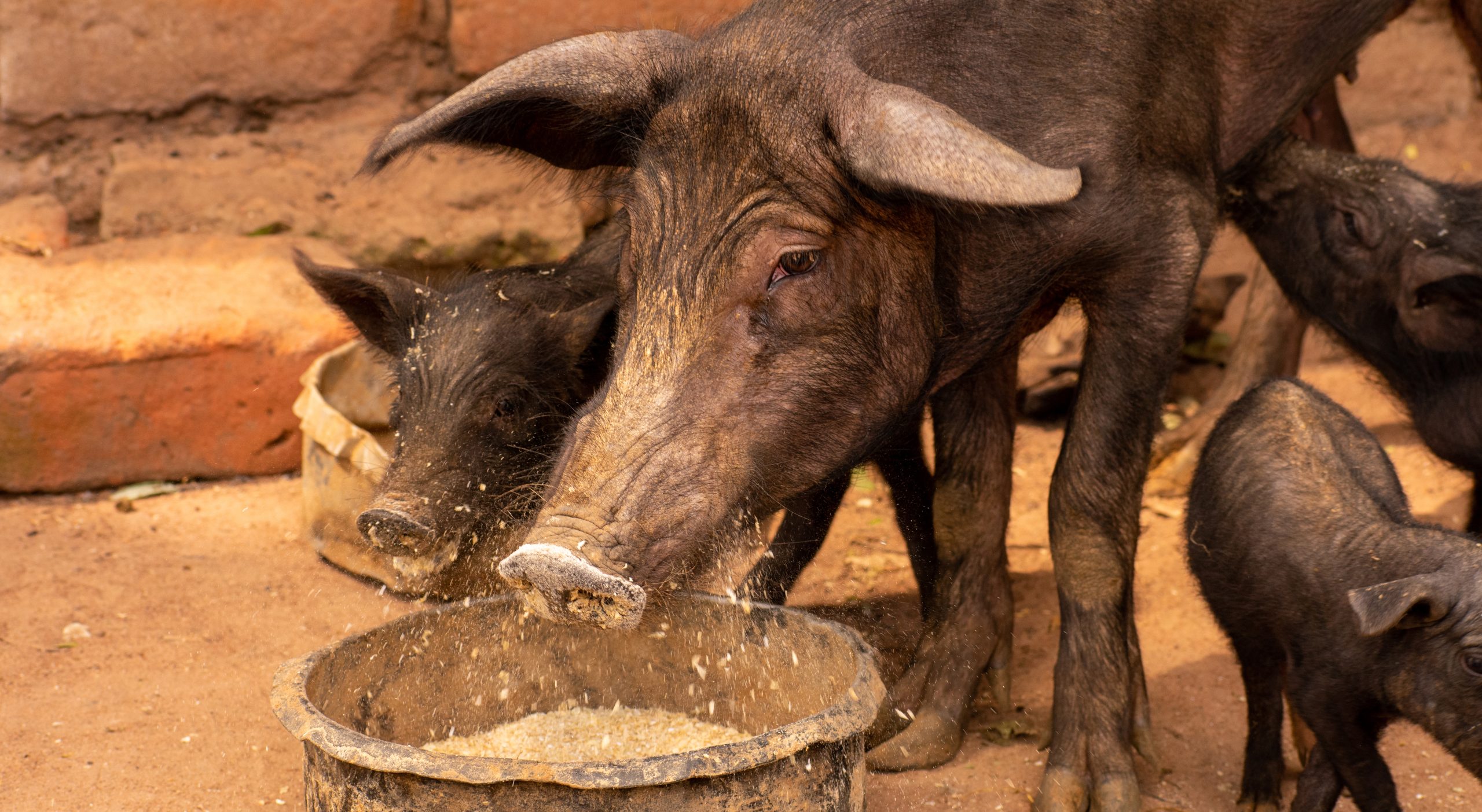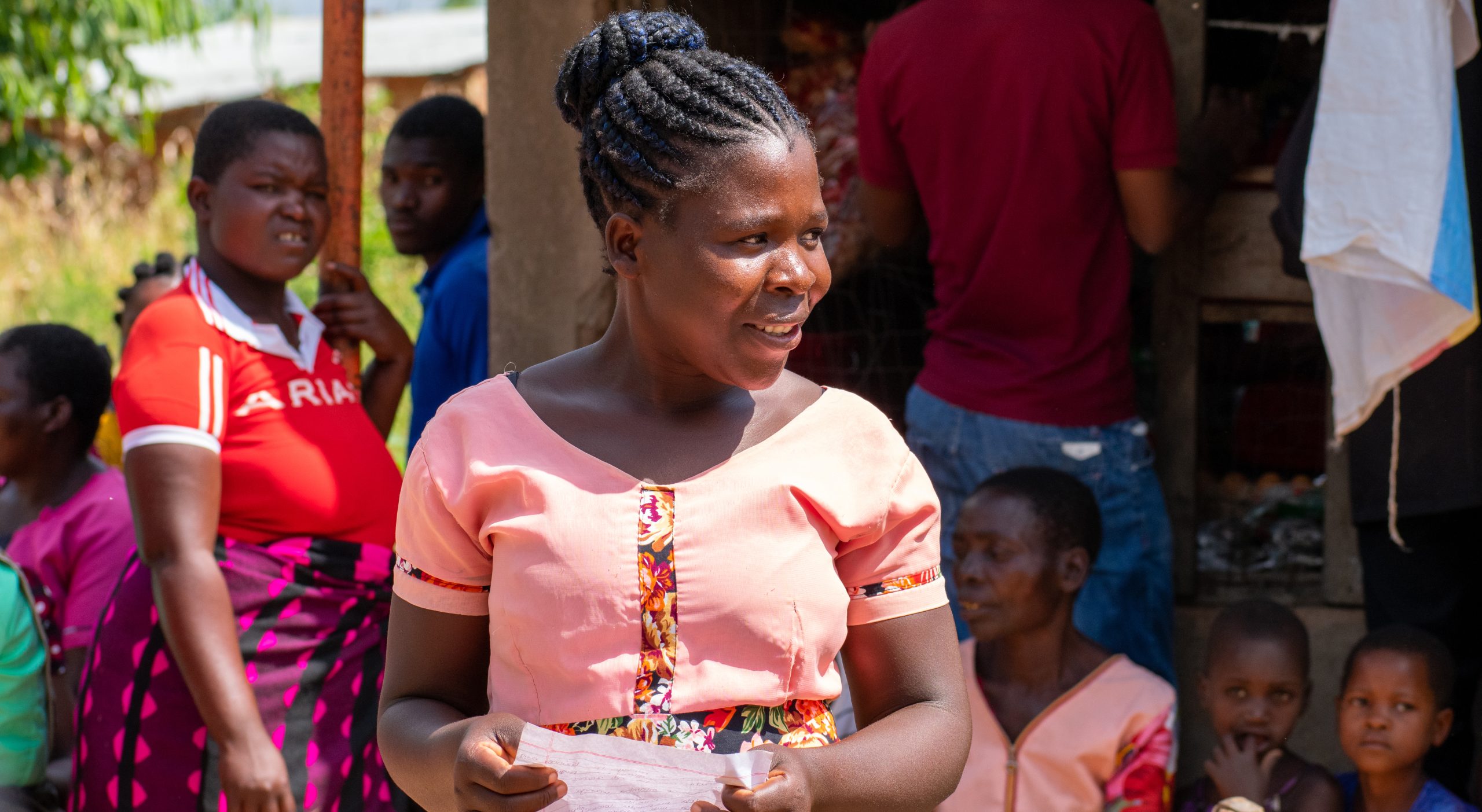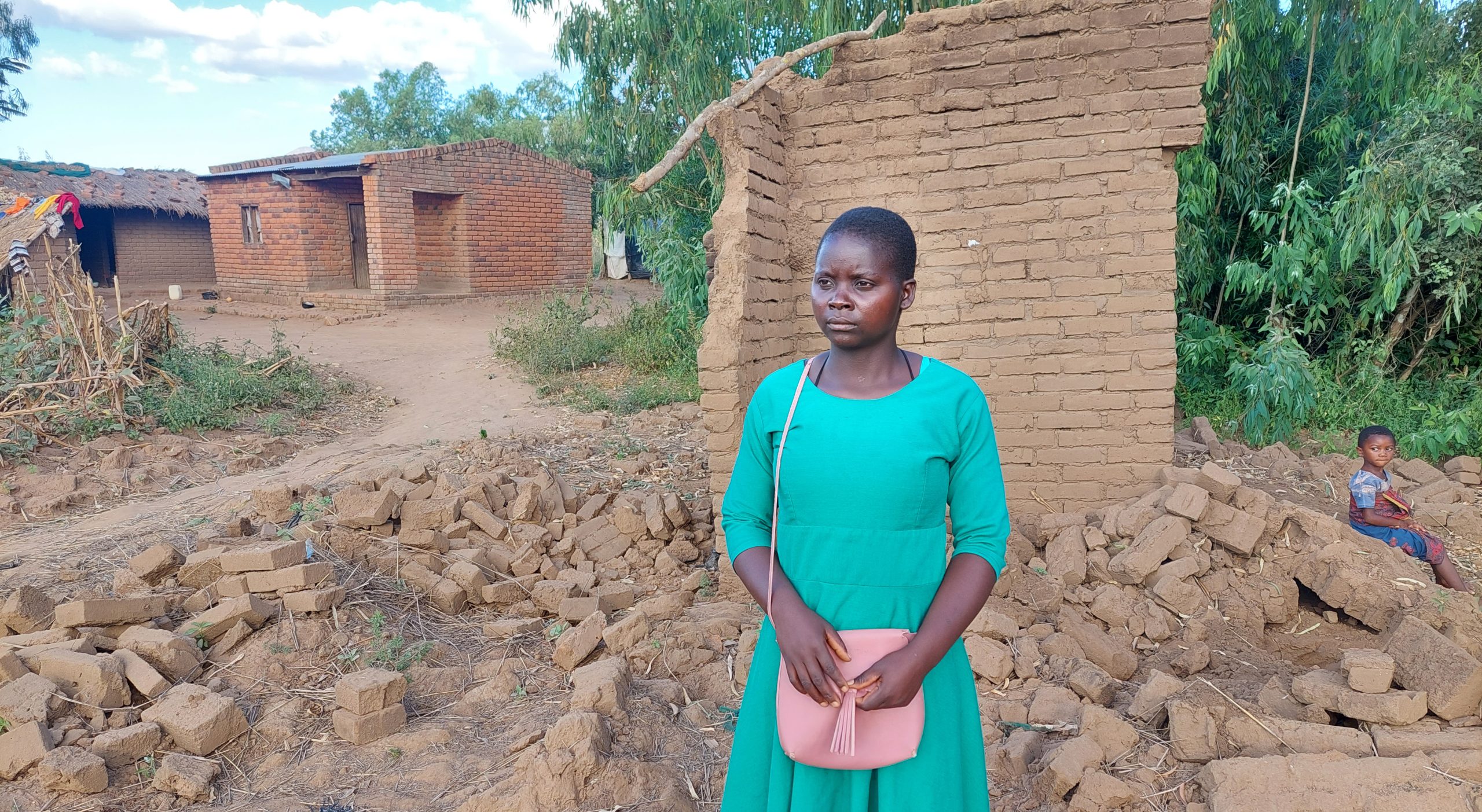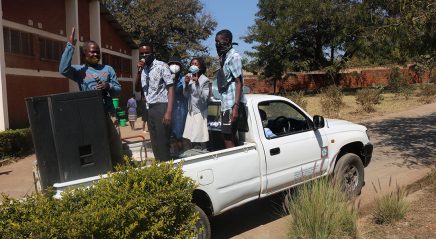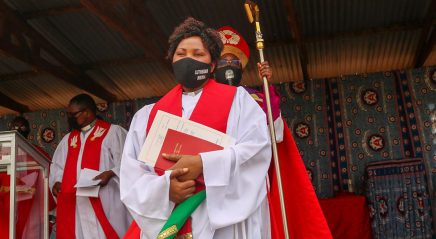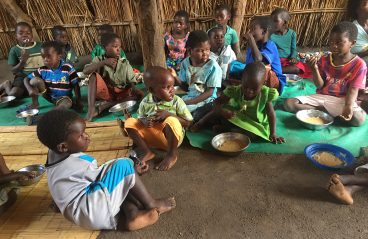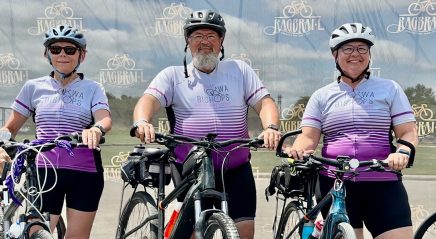Elube Phunduma laughs as her sow and five piglets noisily devour their dinner, much to the delight of the visitors to her home in the village of Bakali, Malawi. The piglets—and the joy they inspire—are more than entertainment though. Elube knows that the animals will provide her income she will need to avoid the food insecurity faced by so many people in the southeastern African country.
More than 70% of Malawians live below the international poverty line of $1.90 per day. The rate of hunger is staggeringly high, with nearly 35% of people facing moderate to severe food insecurity. Many rely on small-scale farming and creative entrepreneurship to survive, often running businesses that sell firewood for cookstoves, homemade food or crafts.
In recent years, severe storms have compounded the challenges. In March 2023, Tropical Cyclone Freddy, the longest-lasting and most powerful cyclone on record, killed more than 1,000 people in Malawi and destroyed homes and crops throughout the country. The cyclone left grief, trauma and disappointment in its wake. Farmers preparing to harvest crops instead cleared fields of debris and broken stalks. Families fortunate enough to have livestock helplessly watched as their animals were washed away by floodwaters. Neighbors mourned together as they described family members drowned or swept away by the sudden flooding.
“Our hope is in God,” shared one member of an Evangelical Lutheran Church in Malawi (ELCM) congregation in Mulanje, “but we don’t even know what to do now because of the situation. The problem is so big.”
The most immediate need is food, and the ELCM is doing what it can to help. A grant from ELCA World Hunger helped the church purchase grain, salt and soya for people facing immediate hunger. ELCM Bishop Joseph Bvumbwe knows that the significance of the food goes beyond nutrition. “This will not solve everything, but this is a sign of our concern [and] it can give them comfort and hope,” he said. “If we want to honestly minister to the people, it will not be soon that we can step away. And we will always need our trusted partners, like the ELCA, along the way.”
In Bakali, Elube and her neighbors know the importance of journeying together with partners. Evangelical Lutheran Development Service (ELDS), the ELC’s development arm, works with women in rural areas as they develop the means to generate income and, hopefully, reduce their vulnerability to hunger when unexpected events, such as cyclones, happen.
“This [food] will not solve everything, but this is a sign of our concern [and] it can give them comfort and hope.”
With support from World Hunger, ELDS assists the women as they form “self-help groups” to learn from each other, support one another and celebrate success together. Through her group, Elube learned methods for crop rotation and water retention for her field of maize. “Before joining the self-help group, it was difficult to harvest enough crops, and malnutrition was high. There was no food in the house,” she said. With this support, she has nearly doubled her harvest.
In addition, the groups provide women access to loans they wouldn’t be able to get through traditional banks. A small loan allowed Elube to purchase her sow, and now she looks forward to the opportunities her new piglets will create for herself and her family.
Access to capital through the self-help groups also provides the financial support the women need to make their entrepreneurial ideas come to life. Elube’s neighbor, Hilda, used a loan to open a shop in Bakali. “With the profits from the shop and funds from the self-help group, I can provide basic needs for my family, such as food, school fees and clothes,” she said.
For women impacted by Cyclone Freddy, the self-help groups provide a critical lifeline. While the storm destroyed her crops, Hilda was able to rely on profits from her store to support her family. In the village of Mulike, in the Phalombe District, Cecilia, a young mother, lost her home in the cyclone. With a loan from the self-help group, she was able to repair a nearby house for her family until her home can be rebuilt
“Before joining the self-help group, it was difficult to harvest enough crops, and malnutrition was high. There was no food in the house.”
The benefits of the self-help groups go beyond meeting material needs for food, income and shelter. The groups foster gender justice by providing opportunities for women who are often locked out of other opportunities due to discrimination. Within the groups, women from Bakali to Mulike create opportunities for themselves, increase their financial independence and work together to transform their communities today and for future generations.
Elube’s crops and pigs, ELCM’s sacks of grain and soya, Hilda’s store and Cecilia’s house are important steps toward a future without hunger in Malawi. They are also symbols of the ways in which Lutheran Disaster Response and World Hunger, through the ELCM and ELDS, intersect to meet both ongoing and rapidly changing needs. But even more so, they are symbols and tangible results of the hard work and persistence of the many women in self-help groups, and the church that accompanies them, who are confronting hunger and poverty with determination and hope so the challenges that have marked Malawi’s past don’t need to define their future.



